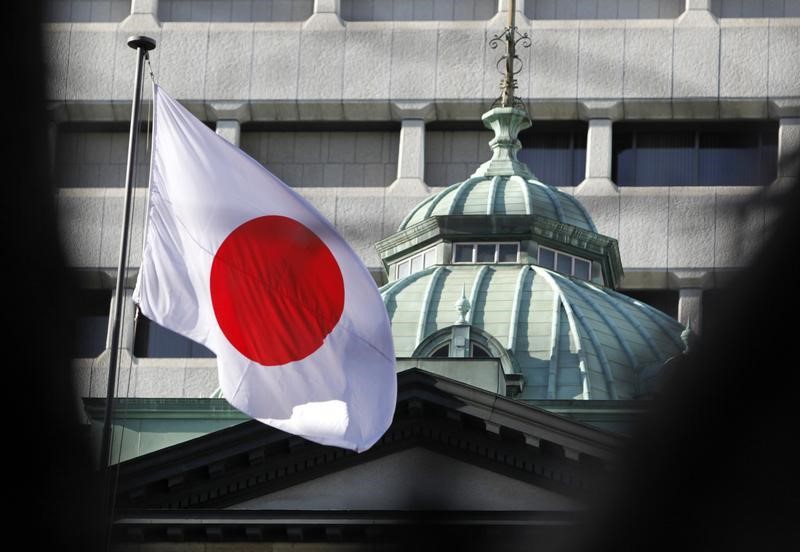By Leika Kihara
TOKYO (Reuters) - The Bank of Japan will next week consider changes to its massive stimulus program to make it more sustainable, such as allowing greater swings in interest rates and widening its stock-buying selection, people familiar with its thinking said.
The changes, although small, would be the first since 2016 and the latest sign Governor Haruhiko Kuroda is gradually walking away from his radical stimulus program deployed five years ago to shock the public out of a sticky deflationary mindset.
They would also come as a recent slew of soft data is seen forcing the central bank to trim its price forecasts at the July 30-31 rate review, and concede that inflation will fall short of its 2 percent target up to three years from now.
After half a decade of heavy money printing failed to fire up inflation, BOJ policymakers are caught in a bind.
While the BOJ would struggle to justify whittling down stimulus with inflation still distant from its target, it is nonetheless under pressure to address the rising cost of prolonged easing, such as the hit to bank profits from near-zero rates, which would require raising rates.
The nine-member board will thus discuss ways to make its policy more sustainable, mainly via tweaks to its asset-buying techniques and guidance on its yield targets, the sources said.
"If achievement of the price target takes time, the BOJ's policy will last longer. That means the cost of easing will keep accumulating," one of the sources said on condition of anonymity due to the sensitivity of the matter.
SEVERAL OPTIONS EYED
Sources have told Reuters the BOJ, facing stubbornly low inflation, is in unusually active discussions on making tweaks to its rate policy and stock-buying techniques.
Under its yield curve control (YCC) policy, the BOJ pledges to guide short-term interest rates at minus 0.1 percent and 10-year bond yields around zero percent. It also buys government bonds and risky assets, such as exchange-traded funds (ETF) and corporate bonds, to flood markets with cash.
Several options are on the table with a final decision on which steps to take dependent on how big the downgrade in the board's price projections could be, the sources said.
Among them would be to tweak the language of the BOJ's policy statement to allow yields to rise more naturally, they said.
Markets now consider 0.11 percent as the BOJ's line in the sand as the bank has repeatedly intervened to prevent 10-year yields from rising above that level, despite insisting it has no set range in mind in guiding long-term rates around zero.
The BOJ will keep its yield targets intact but could signal that it would allow long-term rates to move more flexibly, either by tweaking its policy statement or through Kuroda's comments at his post-meeting briefing, the sources said.
The central bank could also make operational changes to the way it buys bonds and ETFs, a nod to critics who say the bank's huge purchases are drying up market liquidity and distorting price action, they say. For details on options, please see FACTBOX.
While allowing long-term rates to rise more could help ease the pain on banks, the BOJ could struggle to justify such a move when inflation remains distant from its target, analysts say.
At the July rate review, the BOJ will also issue a quarterly report with new growth and inflation projections. The report will also look into structural factors weighing on inflation.
